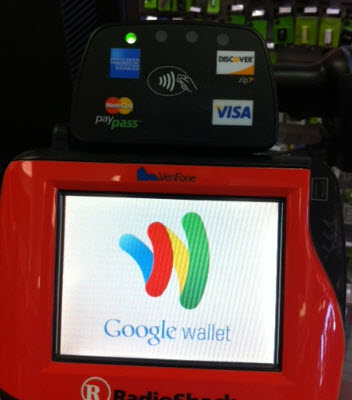 Google Wallet may soon take the form of a card
Google Wallet may soon take the form of a card
By now, consumers that are interested in mobile commerce are likely to have heard of Google Wallet. This mobile payment platform can transform smart phones and tablets into platforms that allow consumers to make purchases of goods and services using digital information rather than physical currency. Despite a relatively rough launch last year, the Google Wallet has become a leading mobile commerce platform, successfully exposing a wide range of consumers to the concept of mobile payments.
Google Wallet Card could help expand the accessibility of mobile commerce
Google may now be gearing up for the launch of a physical version of the Google Wallet. The Google Wallet Card, as it is being called by Android Police, a technology web site, has caught some screenshots of Google’s plans and how a physical card may be the next step in the continued evolution of the Google Wallet. The new system will provide consumers with a card, much like the traditional credit cards that are widely used today. This card will be linked to a Google Wallet account and make use of the financial information associated with that account.
Consumers without NFC-enabled devices left out of mobile commerce loop
Through this initiative, Google aims to make mobile commerce more accessible to a wide range of consumers. Currently, mobile commerce is largely reserved to those with NFC-enabled mobile devices. Those without such a device are unable to participate in mobile payments simply because their devices cannot interface with the technology used in mobile commerce. The Google Wallet Card will solve this problem by giving consumers another option to engage in mobile payments.
Still a long way to go before mobile commerce becomes mainstream
The Google Wallet Card will be accepted anywhere major credits card are accepted. Google has invested heavily in mobile commerce thus far and is keen to ensure most consumers have the ability to engage in mobile payments. The Google Wallet Card is one step closer to realizing this plan, but Google will have to continue its work in order to get people interested in making payments using their smart phones and other mobile devices.

 opping network that is rising to prominence on the back of mobile commerce. Thing Daemon, a social business company founded in 2010, runs a Pintrest-like shopping website called The Fancy. In late October, The Fancy raised more than $26.4 million from investors interested in the concepts of social and mobile commerce. Thing Daemon also added former American Express vice chairman Ed Gilligan to its board of directors, further boosting its presence as a breakout success in the mobile commerce space.
opping network that is rising to prominence on the back of mobile commerce. Thing Daemon, a social business company founded in 2010, runs a Pintrest-like shopping website called The Fancy. In late October, The Fancy raised more than $26.4 million from investors interested in the concepts of social and mobile commerce. Thing Daemon also added former American Express vice chairman Ed Gilligan to its board of directors, further boosting its presence as a breakout success in the mobile commerce space.